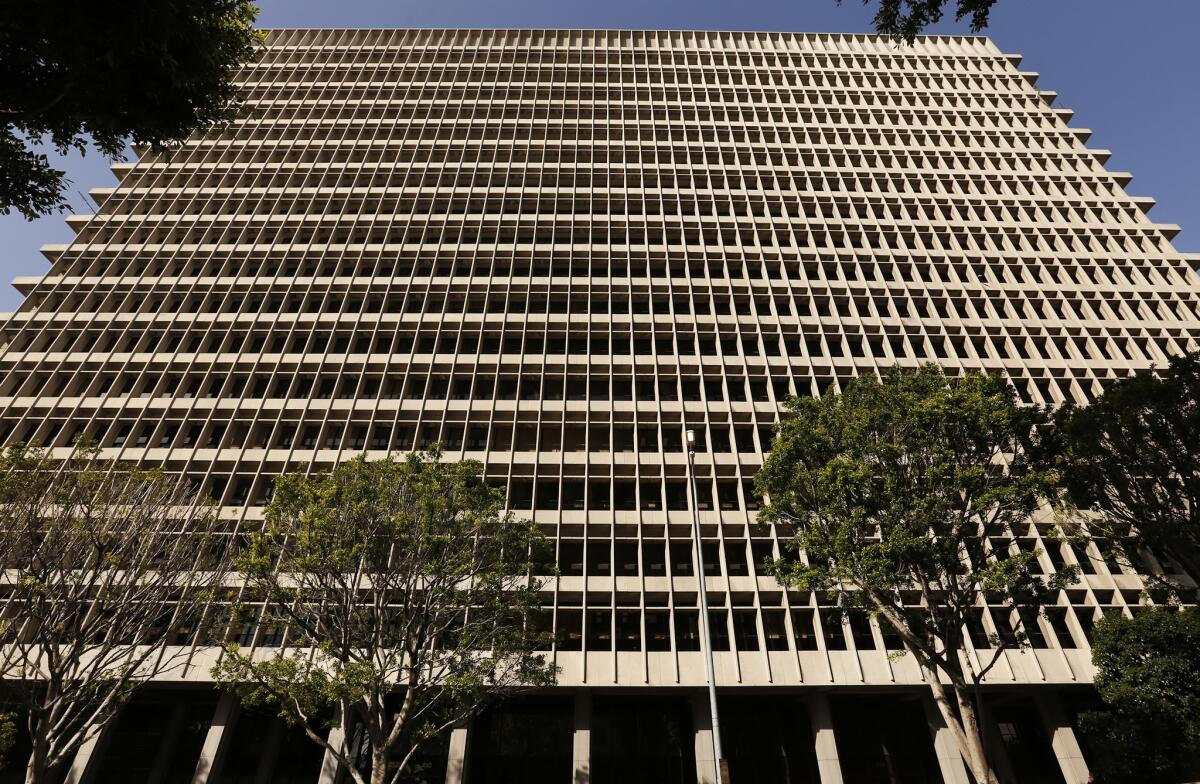Editorial: Attack racism in California’s criminal proceedings

The nation has far to go to make its justice system truly just, a point that has been driven home by continuing protests against not just police killings of Black Americans but the racism built into the structure of U.S. society and law. Several key bills pending before the California Legislature would push the state in the right direction — if lawmakers are able to approve them and send them to the governor’s desk despite a coronavirus-related halt to proceedings.
Assembly Bill 3070, by Assemblywoman Shirley Weber (D-San Diego), addresses discrimination in jury selection, a problem that on paper does not exist, yet one that in practice is all too real.
No prosecutor (or judge or defense lawyer, for that matter) may legally strike a prospective juror because of race. Yet race comes into play anyway, for example when a prosecutor removes a prospective juror for living in a high-crime neighborhood, being a repeat crime victim and therefore being “desensitized to violence.”
That example is one of many cited in a report by the Berkeley Law Death Penalty Clinic that studied prosecutors’ stated reasons for keeping people off juries.
Other cited examples include a prospective juror who said he had been falsely accused and had spent four months in jail, leading to the prosecutor’s assertion that the juror would have a lot of sympathy for the defendant. A prosecutor rejected another would-be juror because she said the criminal justice system unfairly leads to disproportionate arrests of people of color. Prosecutors struck one juror for a hairstyle deemed incompatible with being part of a “cohesive group,” another for wearing dollar-sign diamond earrings, another for “extraordinarily long fingernails,” another for wearing dreadlocks, which the prosecutor said were “somewhat associated with a Reggae culture” that “promotes drug use.” Each of these prospective jurors was Black.
On average, people of color are disproportionately burdened by poverty and as a result live in less-choice neighborhoods with higher crime rates. Greater police presence in those communities, coupled with implicit bias among some officers, prosecutors and judges, makes them disproportionately likely to be falsely arrested and to have a more jaundiced (and perhaps more realistic) view of the criminal justice system.
One corrective measure is to ensure that their perspectives are included on juries — yet too often they are excluded precisely for possessing the experiences and outlooks that should make them an indispensable part of the system. That’s because they are subject to peremptory challenge — exclusion from the jury for reasons the prosecutor need not explain.
In a landmark 1986 ruling, the U.S. Supreme Court disallowed peremptory challenges to prospective jurors based on their race (the ruling has since expanded to include gender and sexual orientation). But the decision in Batson vs. Kentucky leaves much of the burden of showing discrimination on the defendant, and permits prosecutors a great deal of leeway to argue that they had a nonracial motivation for excluding the juror — such as being from a rough neighborhood or wearing the “wrong” hairstyle, clothing or jewelry.
Weber’s bill would allow criminal defendants in California courts to ask the reasons for a prosecutor’s peremptory challenge. It would then be up to the judge to examine whether the explanations justify exclusion for reasons unrelated to race, ethnicity, gender, gender identity, sexual orientation or national origin. It’s the right move, even if it makes peremptory challenges more like challenges for cause. Jurors should not be excluded absent good cause in any event.
AB 2542 by Assemblyman Ash Kalra (D-San Jose) is a companion bill directed at the other end of criminal proceedings — after conviction, when evidence arises of racism that affected the pretrial, trial or sentencing phases. Current law — like Batson, established in the 1980s by the U.S. Supreme Court — requires defendants who are challenging racial bias in their prosecution to demonstrate that the bias was intentional.
That’s a high burden that sweeps away what our society has slowly come to recognize: that for racism to do its damage to individual defendants and to the integrity of our system of justice, it need not be blatant or explicit. Bias remains real and toxic even, and perhaps especially, when it is unconscious and implicit.
The California Racial Justice Act would prohibit the state from seeking a conviction or imposing a sentence on the basis of race, regardless of intent, and would allow a defendant already convicted or sentenced to seek a new trial upon producing persuasive evidence that proceedings were tainted by such bias.
Lawmakers still have time to advance other crucial criminal justice reforms as well. AB 3234 by Assemblyman Phil Ting (D-San Francisco) would strengthen California’s diversion programs by allowing the judge, rather than the prosecutor, final say in whether to direct a defendant away from criminal proceedings to a treatment program or other alternative. SB 776 by Sen. Nancy Skinner (D-Berkeley) would enhance recent laws requiring public disclosure of police records. AB 1185 by Assemblyman Kevin McCarty (D-Sacramento) would permit county boards of supervisors to create the type of sheriff oversight commission we have in Los Angeles County. Each of these bills would make incremental but important improvements that would shore up the “justice” in the state’s criminal justice system.
More to Read
A cure for the common opinion
Get thought-provoking perspectives with our weekly newsletter.
You may occasionally receive promotional content from the Los Angeles Times.










